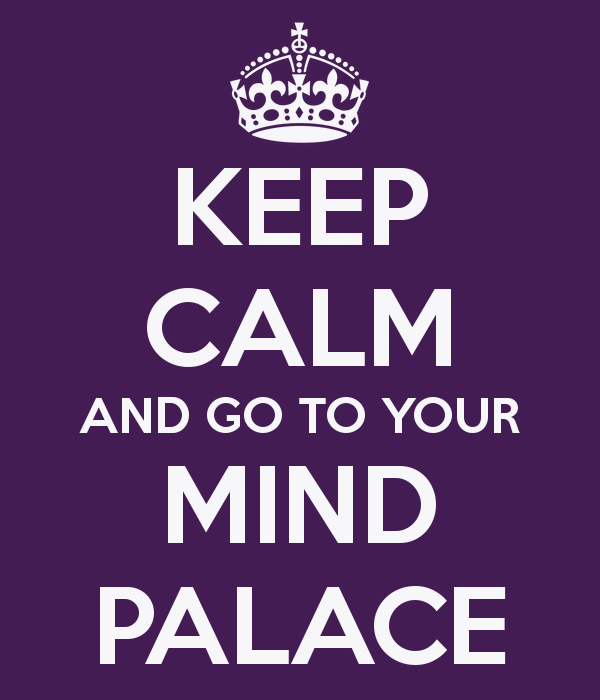By Lily Kelting
In the middle of the second season of Sherlock, Holmes turns to John, Molly, and the viewer and growls, “Get out… I need to go to my mind palace!” In the final episode of the most recent season, we finally meet Sherlock’s new nemesis, Charles Augustus Magnussen. His secret weapon? A mind palace. Yes, it's been proven that imagining information spatially can help you organize and retain an enormous amount of information. But do our brains really work like Magnussen's imaginary filing cabinets? And if so, how much information can a non-Sherlock really file?
Apparently, a lot. Watching the videos of World Memory Champions parrot 3,841 binary digits memorized over half an hour might be less entertaining than BBC’s latest hit, but it is astounding. Benedict Cumberbatch’s Sherlock showboats, pouts, scowls, and molds his putty-like face into various contortions, as if to prove he is uniquely brilliant. Memory champions like Ed Cooke, however, claim to have simply “average memories.” “What you have to understand is that even average memories are remarkably powerful if used properly,” Cooke told the New York Times. A 2003 Nature study confirms: memory champions have average brains, a lot of practice, and powerful memorization techniques.
The mind palaces that enable memory champions to memorize the order of a deck of cards in 32 seconds don’t look like Magnussen’s filing cabinets, though. I asked Dr. Larry Squire, Professor of Psychiatry, Neurosciences, and Psychology at UC San Diego about the way that Sherlock visually represented Sherlock and Magnussen’s mind palaces. I told him that Magnussen mentally visited a vault full of filing cabinets that he would rifle through for government secrets. He furrowed his brow. “That doesn’t seem like a very good analogy,” he understated. “Memory is associative. Things are linked to similar things.” Memorizing massive amounts of information is not like normal memory, he noted. In order to shock the brain into remembering seemingly endless data, the memorizer must associate this information with a series of vivid mental images deliberately and in advance. To represent the king of clubs, journalist and memory champion Joshua Foer used the image of moonwalking with Einstein, the title of his book about memory competitions. Sex acts are, perhaps unsurprisingly, hugely popular images.

The fact that a “mind palace” sounds quaintly Victorian makes it the perfect tool for Sherlock. The simplicity of the device also reveals Magnussen to be a lackluster villain, despite the symmetry of his and Sherlock’s mental acuity. Bond villains have grills and trained sharks; Magnussen has a palace in his mind filled with imaginary filing cabinets. Watching him lick a political opponent’s face as a show of domination in “The Last Vow” might be spine-tingling, but his secret weapon is actually both ancient and accessible.


